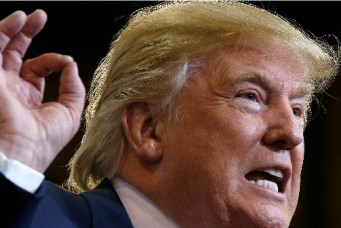America and the Middle East – II
A foreign power like the United States cannot devise a new policy on, say, Iran, Arab democratization, or terrorism, without also reassessing its stance on other key issues like Israeli colonization, or using drones as assassination machines.
As President Barack Obama of the United States starts his official visit to the Middle East this week, he might profitably recognize how this region has changed in recent years, and is defined today by complex and volatile issues that are also interlinked. So a foreign power like the United States cannot devise a new policy on, say, Iran, Arab democratization, or terrorism, without also reassessing its stance on other key issues like Israeli colonization, or using drones as assassination machines.
I hope that President Obama has some honest Middle East counselors who can explain to him two important points: Most of the people of the Middle East assess foreign powers on the basis of their integrated policies across the many issues that preoccupy us, such as Palestine, Iraq, or pro-democracy uprisings; and, many of the problems and threats in the region can be traced to a cycle of destructive policies adopted by local Arab, Israeli and Iranian leaders, but also by American leaders.
The complexities of our region are reflected in the list of key issues that define the Middle East today: the Arab-Israeli conflict; Iran’s regional roles; the Arab democratic uprisings; the wreckages in Iraq and Afghanistan; the impact of new actors like Turkey, the Gulf Cooperation Council states, China, and numerous Arab Islamists; the threats of terrorism and weapons proliferation, and also of weak or collapsing states; severe socio-economic disparities within and among countries; the new ideological Iranian-Saudi-led cold war across the region; and, the impact of new digital technologies in the hands of emboldened young men and women who no longer fear their authoritarian regimes, occupying and colonizing Zionists, or invading and threatening Western armies.
If President Obama on his way to the Middle East were able to honestly trace how we reached this messy and dangerous situation, he would have to conclude that former and some current American policies are deeply complicit in some of the problems and threats the region faces. For example, America’s deep tilt towards Israel in the Arab-Israeli conflict and its amateurish mediation are among the important reasons why the conflict persists, and gets entangled with the Iran issue. The inability of Washington to engage rationally or equitably with Iran, while kowtowing to Israeli excesses, has helped to make Iran’s status in the region very contentious.
American and other foreign support for Arab autocrats and dictators for over half a century helped to create the conditions of disparity, corruption, and populist despair that ultimately sparked the uprisings and citizen demands for rights that we now witness. The Anglo-American invasion of Iraq has been the single most important stimulus for new terrorists who gravitated to occupied Iraq from many lands, eager to repel the foreign invaders, and who have since seeped out of Iraq to do their dirty deeds in other Arab countries.
I could offer many other examples that show how the miscalculation, occasional criminality and just plain old stupidity in some of the policies of the United States, other foreign powers and many Arab, Iranian and Israeli leaders have generated a cycle of stress and violence that sees many parts of our region as engulfed in warfare, vulnerable or crippled states, retreating governments, populist revolts, and constant brinksmanship that could easily spill over into destructive region-wide conflicts.
This is not the fault of the United States only, but at the same time it is the United States only that brings its power to bear on our region, rather than Middle Easterners trying to shape American ways. The United States has sent its army to fight two wars in the region, still uses drones to kill suspected terrorists, calls for Arab democracy but steadfastly supports Arab autocracy, threatens and sanctions Iran on the basis of accusations and assumptions that have yet to be proven more substantial than the big fat American lies that were used to wage war in Iraq, and keeps Israel stronger than all its Arab neighbors combined, while claiming but failing to mediate a peace among those parties.
President Obama is more likely to succeed in forging policies in the Middle East that benefit his own country and all the people of the region if he starts by acknowledging that this is not a situation where bad Middle Easterners like to fight wars and wave swords and bombs, and good Americans try to help where they can. A more accurate starting point would be to admit that American foreign policy – in close partnerships with many local scoundrels — has often played a direct and sustained role in generating many threats and dangers across the Middle East. In other words, the U.S. could contribute to reducing tensions and violence across the Middle East, and enhance American interests, simply by adopting more law-abiding, constructive policies in the region.
Rami G. Khouri is Editor-at-large of The Daily Star, and Director of the Issam Fares Institute for Public Policy and International Affairs at the American University of Beirut, in Beirut, Lebanon. You can follow him @ramikhouri.
Copyright © 2013 Rami G. Khouri — distributed by Agence Global


